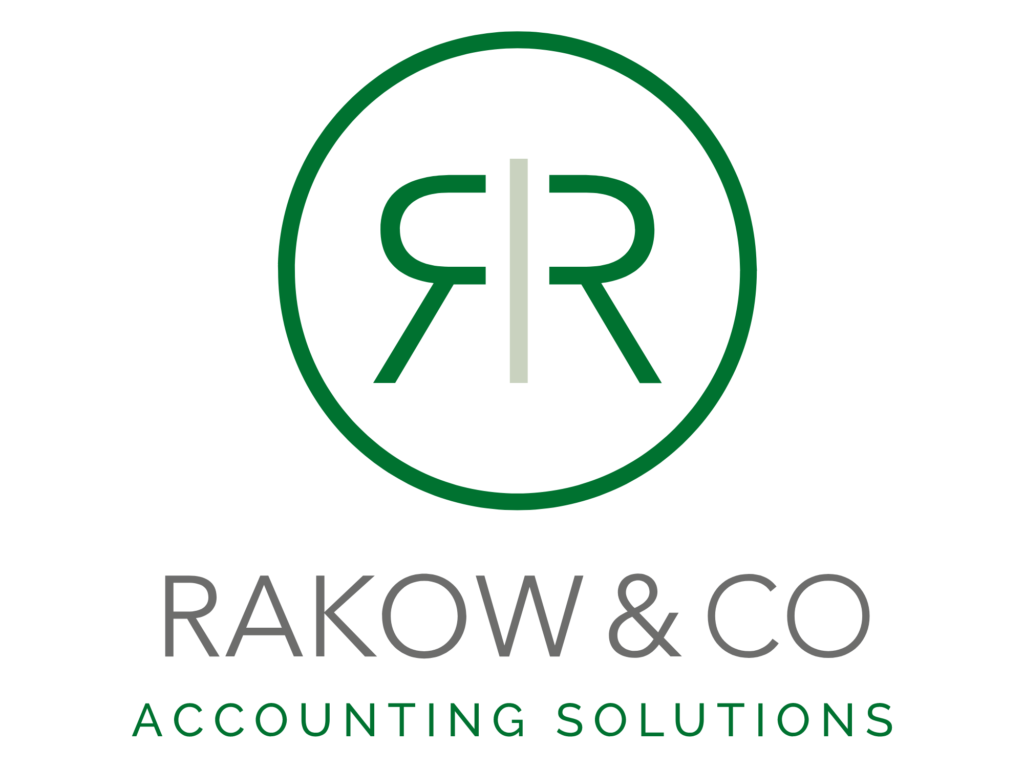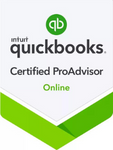Starting a new business is exciting, but it also comes with its fair share of challenges. One of the most important aspects of building a successful startup is maintaining accurate financial records.
Proper bookkeeping for startups isn’t just about keeping records; it helps you stay organized, meet legal requirements, and build trust with investors. In this guide, we’ll walk you through why bookkeeping matters, how to avoid common mistakes, and what steps you can take to build a strong financial system for your startup.

Understanding Startup Bookkeeping?
Startup bookkeeping refers to the process of recording, organizing, and managing all financial transactions of a new business. This includes tracking income, expenses, assets, liabilities, and equity. While it might seem tedious, it’s essential for making informed decisions and keeping your business stable.
For founders, especially those new to entrepreneurship, understanding and implementing effective bookkeeping practices can be the difference between success and failure. Professional bookkeeping can help you get funding, avoid legal trouble, and manage your business as it grows.
Why Bookkeeping Matters For Startups
Accurate bookkeeping is the backbone of every successful startup. To avoid costly mistakes, consider bookkeeping and tax services that cover both your daily records and your annual filings. With professional support, you can stay organized, meet compliance requirements, and focus on growing your business-knowing your finances are in good hands.
Impact on Funding
Good bookkeeping for startups shows you exactly how your business is doing financially. It helps you see how much money is coming in and going out, so you can make smart decisions about where to invest, when to save, and how to grow. Accurate records are also essential for tax compliance and can make your business more attractive to investors and lenders.
Legal and Compliance
Poor bookkeeping can lead to missed tax deadlines, incorrect filings, and potential audits. Consequences of poor bookkeeping include tax penalties and legal issues. Startups with precise bookkeeping are much more likely to secure funding in their early stages. Without proper bookkeeping, you risk making decisions based on guesswork, which can lead to cash flow problems, missed tax deductions, and even legal issues.
Strategic Decision-Making
Organized financial data helps you plan for the future, manage your money, and show investors you are reliable. With accurate records, founders can make informed decisions about hiring, expansion, and budgeting. Startup bookkeeping is not just a chore; it helps you run your business better.
Common Bookkeeping Mistakes Startups Make
Many new business owners make the same bookkeeping mistakes. Here are the most common ones and how you can avoid them:
- Mixing Personal and Business Finances: Combining personal and business expenses makes it hard to see how your business is really doing and can cause headaches at tax time. Always open a separate business bank account and get a business credit card from the start.
- Neglecting Regular Reconciliation: Reconciling your bank statements with your books each month helps you catch errors, spot fraud, and keep your records accurate. Make it a habit to do this regularly-don’t wait until tax season to check your numbers.
- DIY Bookkeeping Without Expertise: Doing your own bookkeeping can work when you’re just starting out, but as your business grows, so does the complexity of your finances. Without the right knowledge, you might miss important details or make costly mistakes.
- Inaccurate or Incomplete Records: Missing even a few receipts or not recording all transactions can throw off your records and cost you valuable tax deductions.
- Ignoring Cash Flow Management: Poor cash flow tracking leads to failure. Regularly review your cash flow to spot problems early and make adjustments as needed. Without proper cash flow management, even profitable businesses can run into financial trouble.
- Misclassifying Expenses: Incorrectly categorizing expenses can affect your tax filings and financial statements. It’s important to understand the correct classifications to ensure accuracy.
- Waiting Until Tax Season to Organize Books: Procrastinating until tax season can lead to rushed filings, missed deductions, and potential penalties. Regularly updating your financial records throughout the year can alleviate this stress.
Essential Bookkeeping Practices For Startups
Now that you know the common mistakes, here are some best practices to keep your startup’s finances in order:
- Separate Business and Personal Accounts: Setting up dedicated banking and credit accounts for your business ensures clear financial separation and simplifies record-keeping.
- Automate Bookkeeping Tasks: Using software like QuickBooks, Xero, or FreshBooks can streamline bookkeeping tasks, reduce errors, and save time.
- Maintain Detailed Records: Keep records of income statements, balance sheets, cash flow statements, invoices, and receipts. These documents are essential for tax filings and financial analysis.
- Regularly Review Financials: Establish weekly and monthly routines for reviewing your financials. Regular reviews help identify potential issues early and keep your business on track.
- Understand Financial Statements: Learn how to read and use income statements, balance sheets, and cash flow statements. Understanding these documents is crucial for making informed business decisions.
Setting Up Your Startup’s Bookkeeping System
Setting up a solid bookkeeping system from the start will save you time, reduce stress, and help you make better business decisions. Here’s a step-by-step guide to get your startup’s finances organized:
Step 1: Define What You Need to Track
Start by listing all the financial information your business needs to record. At a minimum, you’ll want to track your revenue (money coming in), expenses (money going out), and any key metrics that matter for your type of business. For example, if you run a SaaS company, you might also track monthly subscriptions or customer churn. Make sure your system can handle more transactions as your business gets bigger.
Step 2: Set Up Your Business Bank Account
Open a business bank account and get a business credit card. This keeps your personal and business finances separate, which makes bookkeeping much easier. Choose a bank that works well with your accounting software, so you can automatically import transactions and save time on data entry.
Step 3: Choose Your Accounting Method
You’ll need to decide between two main accounting methods: cash basis and accrual basis. Cash basis accounting records transactions when money actually changes hands, which is simple and works well for many small businesses. Accrual accounting records transactions when they happen, even if you haven’t been paid yet, giving you a more complete picture of your finances. Talk to your accountant or bookkeeper about which method is best for your startup.
Step 4: Make Bookkeeping A Daily And Monthly Habit
- Daily: Record every transaction as soon as it happens. This keeps your books up to date and helps you avoid mistakes.
- Monthly: Reconcile your bank statements, send and track invoices, and prepare your financial statements. Regular reviews help you catch errors early and stay on top of your cash flow.
Step 5: Create A Bookkeeping Checklist
A checklist helps you stay organized and makes sure nothing gets missed. Include tasks like recording daily transactions, reconciling accounts, filing receipts, and preparing for tax deadlines. Refer to your checklist often to keep your bookkeeping consistent and accurate.
By following these steps, you’ll build a strong foundation for your startup’s financial health and avoid many of the common bookkeeping mistakes that trip up new business owners. If you need help, consider reaching out to a professional for guidance or to handle your startup bookkeeping for you.
Tools And Resources For Startup Bookkeeping
When your business grows or your finances become more complex, consider outsourced bookkeeping for startups. This can be a smart investment, as professionals can handle your books, freeing you up to focus on running your business.
| Software | Best For | Key Features |
|---|---|---|
| QuickBooks | Small to medium businesses | Invoicing, payroll, reporting |
| Xero | Cloud-based businesses | Bank reconciliation, mobile access |
| FreshBooks | Service-based businesses | Time tracking, client management |
| Wave | Freelancers and solopreneurs | Free invoicing, accounting |
| Zoho Books | Small businesses | Inventory management, automation |
| NetSuite | Growing enterprises | ERP, financial planning |
| Sage | Established businesses | Payroll, compliance |
| Campfire | Startups | Simple interface, budgeting |
We also offer a range of Add-On Services for payroll, sales tax, and business support.
How Bookkeeping Informs Your Startup Strategy
- Analyze Your Finances: Use bookkeeping data to spot trends and make informed decisions. Regular review can help you find ways to improve and new chances to expand.
- Budget and Forecast: Accurate records support better planning. With detailed financial data, you can create realistic budgets and forecasts to guide your business decisions.
- Report to Investors: Clean, transparent financials are crucial for fundraising. Investors want to see accurate and timely financial reports before committing funds.
Case Studies And Real-Life Examples
Success Story: Tech Startup Boosts Efficiency by 25%
A New Jersey tech startup set up a reliable bookkeeping system early on. By keeping detailed records and using automation tools, they improved operational efficiency by 25% in just six months. This helped them notice money problems quickly and make changes, which resulted in steady progress and trust from investors.
Failure Story: Retail Startup’s Cash Flow Crisis
A small retail business ignored bookkeeping best practices and waited until tax season to organize their books. They missed important tax deductions, had trouble managing their money, and eventually had to close their doors. This could have been avoided with regular bookkeeping and professional help.
Expert Tips and Best Practices
- Start Early: Set up your bookkeeping system from day one.
- Stay Consistent: Make bookkeeping a regular part of your routine.
- Seek Professional Help: Don’t be afraid to ask for help from a bookkeeper or accountant, especially as your business grows.
- Leverage Technology: Use automation and cloud tools to save time and reduce errors.
Final Thoughts
Good bookkeeping for startups is essential for running a successful business. By avoiding common mistakes and following simple routines, you help your business run smoothly for years to come.
If you need help getting started, Rakow & Co offers professional bookkeeping services designed for startups and small businesses in New Jersey. We also provide a full suite of bookkeeping and tax services and a variety of Add-On Services to support your growing business.
Looking for bookkeeping services NJ? Let us handle the numbers, so you can spend more time on your daily work.
FAQs
What is bookkeeping for startups, and why is it important?
Bookkeeping tracks your startup’s finances to help you make smart decisions, avoid mistakes, and stay compliant.
What are the most common bookkeeping mistakes startups make?
Mixing personal and business finances, missing reconciliations, not tracking expenses, and delaying bookkeeping.
Can I do my startup bookkeeping on my own, or should I hire someone?
You can start on your own, especially with modern software tools. However, as your finances get more complex, it’s often better to consider outsourced bookkeeping for startups or hiring a professional to avoid costly mistakes.
When should I consider outsourcing my startup bookkeeping?
Consider outsourced bookkeeping for startups if you’re spending too much time on finances, making frequent errors, or preparing for investor funding. Outsourcing can save you time and reduce the risk of costly mistakes.
Should I use accounting software for my startup?
Yes, using accounting software like QuickBooks, Xero, or FreshBooks can save you time, reduce errors, and automate many bookkeeping tasks. These tools are especially helpful for busy small business owners.
How often should I update my startup’s books?
Update your books at least weekly, but daily is even better. Regular updates help you catch mistakes early and keep your financial records accurate.You should review your financials at least once a month.
What are the best tools for startup bookkeeping?
Popular tools include QuickBooks, Xero, FreshBooks, Wave, and Zoho Books. These platforms can automate tasks like invoicing, expense tracking, and reporting, saving you time and improving accuracy.
What’s the difference between bookkeeping and accounting?
Bookkeeping is about recording daily financial transactions, while accounting involves analyzing that data to make financial decisions and prepare reports.
What’s the difference between cash basis and accrual accounting?
Cash basis accounting records income and expenses when money changes hands. Accrual accounting records them when the transaction occurs, regardless of payment timing. Startups often begin with a cash basis, but accrual provides a clearer long-term view.





